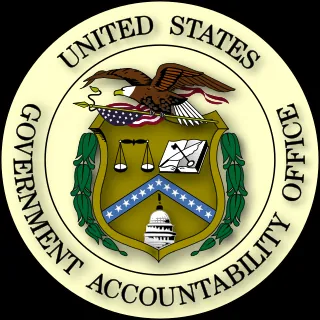Government Accountability Office
The U.S. Government Accountability Office (GAO) is an independent, nonpartisan government agency within the legislative branch that provides auditing, evaluative, and investigative services for the United States Congress. It is the supreme audit institution of the federal government of the United States. It identifies its core "mission values" as: accountability, integrity, and reliability. It is also known as the "congressional watchdog". The agency is headed by the Comptroller General of the United States. The comptroller general is appointed by the president with the advice and consent of the Senate. When a vacancy occurs in the office of the comptroller general, Congress establishes a commission to recommend individuals to the president. The commission consists of the following:the speaker of the United States House of Representatives
the president pro tempore of the United States Senate
the majority and minority leaders of the House of Representatives and the Senate
the chair and ranking member of the Senate Committee on Homeland Security and Governmental Affairs
the chair and ranking member of the House Committee on Oversight

Some of the key events about Government Accountability Office
- 1921Established as the General Accounting Office to improve government financial management after World War I
- 1921Failed to prevent the Veterans' Bureau scandal involving corruption and misuse of funds
- 1946Expanded role to include auditing of government agencies and programs
- 1946Criticized for inadequate oversight of wartime contracts and spending during World War II
- 1967Faced accusations of political bias in its investigations of the Vietnam War
- 1970Began conducting program evaluations to assess the effectiveness of federal programs
- 1974Gained authority to access federal agency records for audits and evaluations
- 1976Criticized for insufficient scrutiny of nuclear power plant safety regulations
- 1983Questioned for its handling of investigations into defense contractor fraud
- 1986Issued first high-risk list identifying federal programs vulnerable to waste, fraud, and abuse
- 1995Criticized for inadequate oversight of the savings and loan crisis cleanup
- 2002Faced controversy over its delayed reporting on Enron's accounting practices
- 2004Changed name to Government Accountability Office to better reflect its mission
- 2007Established the Center for Audit Excellence to promote good governance globally
- 2008Questioned for insufficient warnings about the impending financial crisis
- 2010Launched FraudNet, a system for reporting allegations of fraud, waste, and abuse
- 2014Developed the Duplication and Cost Savings web portal to track government efficiency efforts
- 2014Criticized for failing to prevent widespread fraud in disability benefits claims
- 2019Faced backlash for not providing timely access to documents related to the Trump administration's Ukraine dealings
- 2020Provided critical oversight of the federal government's COVID-19 pandemic response
Disclaimer: This material is written based on information taken from open sources, including Wikipedia, news media, podcasts, and other public sources.





























